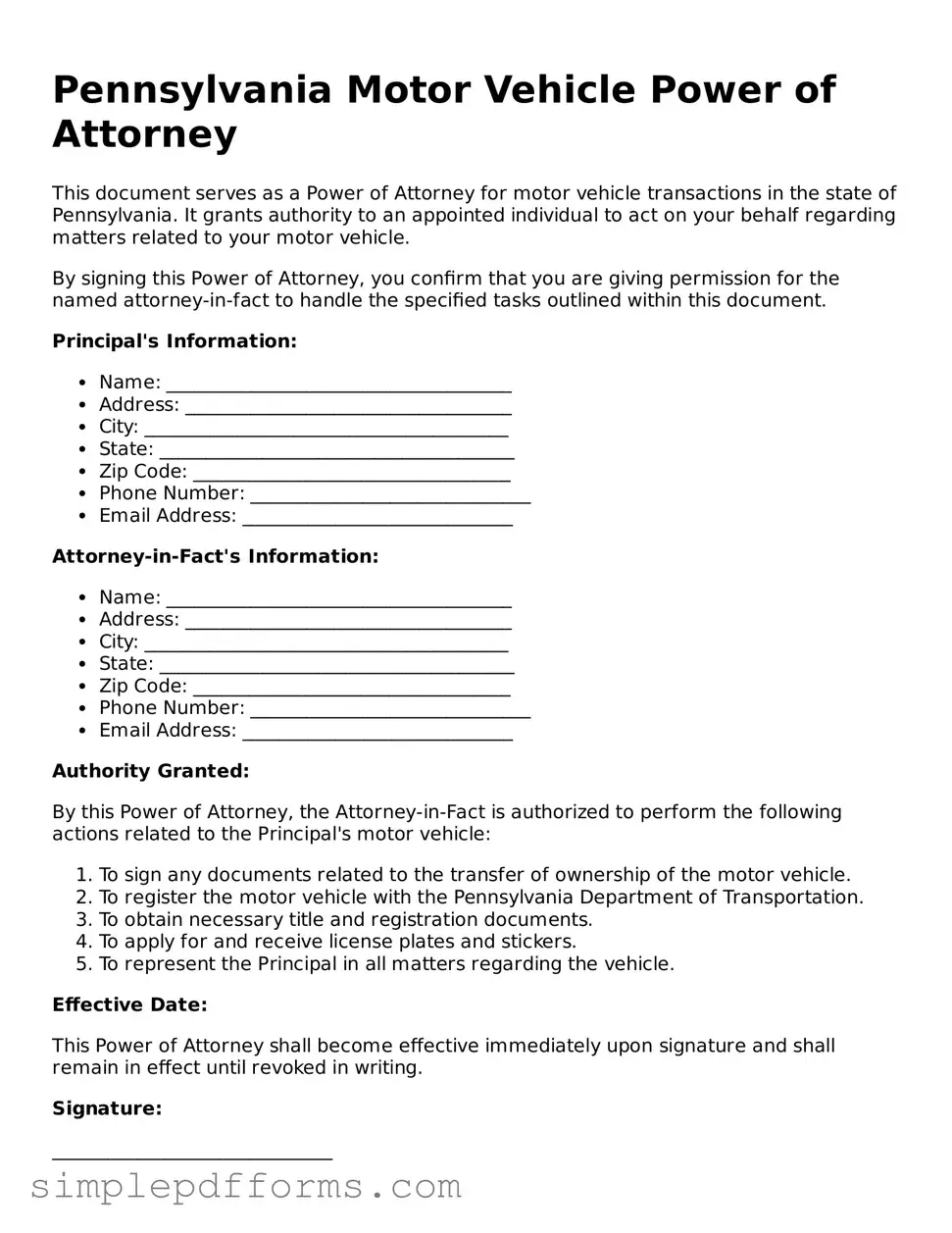Attorney-Verified Motor Vehicle Power of Attorney Document for Pennsylvania State
The Pennsylvania Motor Vehicle Power of Attorney form is a legal document that allows one person to authorize another to handle specific tasks related to motor vehicles on their behalf. This form can simplify processes like title transfers, vehicle registrations, and other related transactions. Understanding its purpose and how to use it can help individuals navigate vehicle-related matters more efficiently.
Open Motor Vehicle Power of Attorney Editor Now

Attorney-Verified Motor Vehicle Power of Attorney Document for Pennsylvania State
Open Motor Vehicle Power of Attorney Editor Now

Open Motor Vehicle Power of Attorney Editor Now
or
Get Motor Vehicle Power of Attorney PDF Form
Your form is waiting for completion
Complete Motor Vehicle Power of Attorney online in minutes with ease.